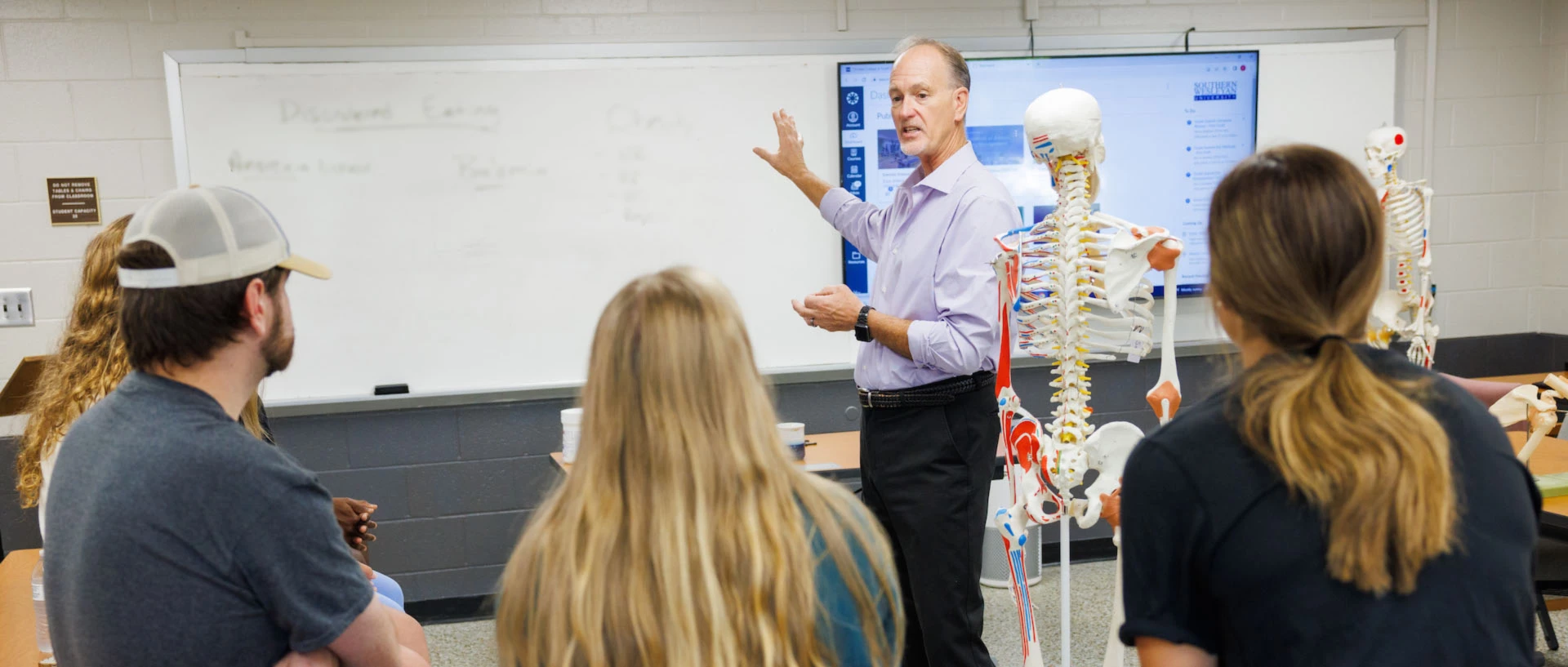
Exercise Science (BS)
Optimize bodies—and faith—with Exercise Science.
As an Exercise Science major at SWU, you’ll integrate faith, science, and practical experience to help individuals reach their highest physiological potential. You’ll study how the human body functions and delve into the ways psychology, spirituality, and emotional health intersect with disease prevention, rehabilitation, and overall quality of life.
Our dedicated faculty provide individualized attention and mentorship, guiding you as you prepare for a variety of potential career paths—physical or occupational therapy, cardiac rehabilitation, fitness management, and more. A faith-filled, hands-on curriculum ensures you’ll graduate ready to apply your knowledge, culminating in a dynamic internship where you’ll gain real-world experience alongside clinical exercise science or fitness professionals.
SWU’s curriculum aligns with recommendations from the American College of Sports Medicine (ACSM), the American Association of Cardiovascular and Pulmonary Rehabilitation (AACVPR), the American Physical Therapy Association (APTA), and the American Occupational Therapy Association (AOTA).
The Exercise Science (BS) program is approved to receive the Enhanced Scholarship for LIFE Scholarship and Palmetto Fellows.
Dr. Cliff Pawley
Exercise Science Program Coordinator and Associate Professor of Exercise Science
ContactDr. Staci Johnson
Chair of the School of Science, Technology, and Mathematics and Professor of Biology
ContactDr. Michele Eller
Department of Life Sciences Coordinator and Associate Professor of Biology
ContactGraduate study
- Athletic Training
- Cardiac and Pulmonary Rehabilitation
- Chiropractic Medicine
- Exercise Physiology
- Health Psychology
- Occupational Therapy
- Physical Therapy
Career Paths
- Athletics coach
- Corporate wellness
- Fitness trainer and instructor
- Health coach
- Recreation therapist
- Wellness coordinator
Graduates of the Exercise Science program will be able to:
- Demonstrate knowledge, in both oral and written format, of the basic sciences and their connection to exercise science.
- Measure physiological outcomes and exercise prescriptive techniques, including using assessment equipment related to cardiovascular, metabolic, muscular, neurological, respiratory, and skeletal systems.
- Analyze and assess human movement across multiple developmental levels and contexts, and develop comprehensive wellness and health programs for individuals, groups, and industries, and for healthy and at-risk populations.
- Confidently explain how a Christian worldview promotes wellness and demonstrate the relationship between psychology/spirituality and exercise, health promotion, and weight control.
